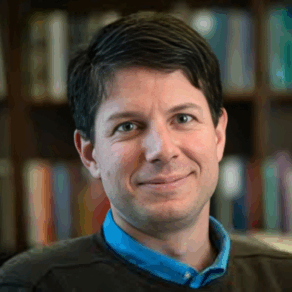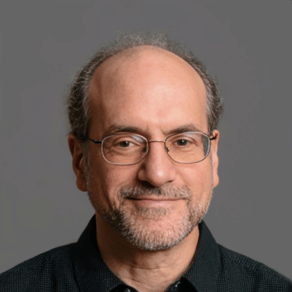
Elia Formisano
[introductory/intermediate] Auditory Cognition in Humans and Machines
Summary
This course examines the fundamental mechanisms and computational models underlying auditory cognition in both biological and artificial systems, with an emphasis on recent advances in artificial intelligence (AI). It explores how humans perceive, process, and interpret sounds—including speech and music—through the combined perspectives of cognitive neuroscience and AI. By integrating theoretical frameworks and empirical findings from cognitive psychology and neuroscience with machine learning techniques, the course covers topics such as neural encoding of sound, speech recognition, auditory attention, auditory scene analysis, and cutting-edge AI systems that emulate human auditory processing. A key focus will be on methodologies for comparing sound representations generated by AI auditory models with those derived from the human brain, as measured by functional neuroimaging.
- Explain key principles of auditory perception and cognition.
- Analyze how the brain represents and interprets complex auditory stimuli.
- Apply computational models of auditory processing.
- Compare computational models of auditory processing with biological systems.
- Critically evaluate state-of-the-art research in auditory neuroscience and AI-based auditory systems.
Syllabus
- Introduction to Auditory Cognition: Human and Machine Perspectives
- Acoustic Properties of Sounds and Relation to Sound Perception
- Neural Mechanisms of Sound Representations
- Computational Models of Auditory Perception
- Spectrotemporal Modulation Encoding in Auditory Cortex
- Deep Neural Networks for Sound Recognition
- Cognitive Mechanisms of Sound Recognition
- Audio–Language Models and Semantic Representations
- Cognitive and Computational Mechanisms of Auditory Scene Analysis
- Datasets and Benchmarks in Auditory AI Research
- Applications: Speech Processing, Hearing Aids, and Brain–Machine Interfaces
- Future Directions in Auditory Cognition Research
References
Pre-requisites
This course is for graduate students and professionals in neuroscience, psychology, computer science, engineering, linguistics, or related fields. Some familiarity with basic neuroscience or machine learning will be helpful.
Short bio
Elia Formisano is a Full Professor in Neural Signal Analysis at the Faculty of Psychology and Neuroscience of Maastricht University. From 2008 to 2013, he has been Head of the Department of Cognitive Neuroscience. He is a Principal Investigator of the Auditory Cognition in Humans and Machines group, and a founding member of Maastricht Center for Systems Biology (MaCSBio). His research aims at discovering the neural computational basis of human auditory perception and cognition. He pioneered the use of ultra-high magnetic field (7 Tesla) functional MRI, machine learning, and AI in neuroscience studies of audition. His research is supported by several national (e.g., NWO VIDI, VICI, and Gravitation) and international (ERC Synergy) funding sources. He has published in high ranked journals, including Science, Nature Neuroscience, Nature Communications, Nature Human Behaviour, Neuron, PNAS, and Current Biology.












